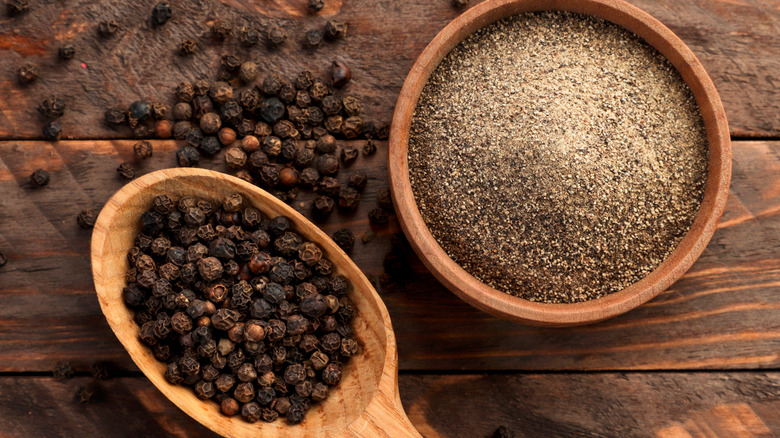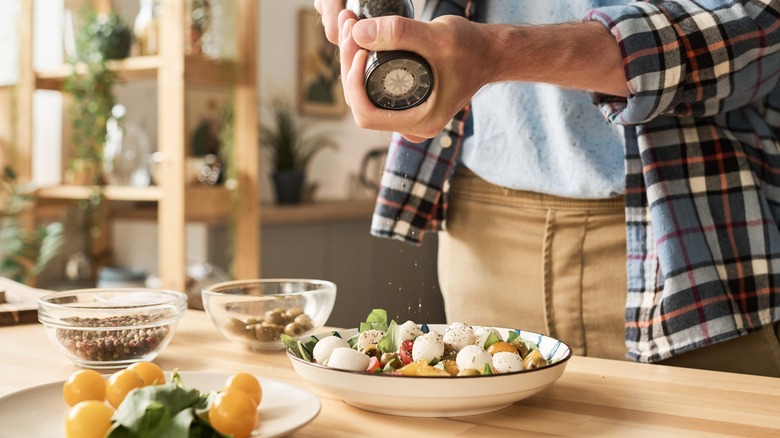Does Black Pepper Actually Expire?
As one of the most popular spices in the world, ground pepper is a go-to for many home cooks. It may not have the kick of cayenne, but this simple spice can boost the flavor of almost any dish. So when it loses the pep in its step, you might wonder if the spice is spoiled. If you've noticed that your ground pepper is no longer pulling its weight in the kitchen, old age could be to blame. As with all spices, time can take a toll on your pepper but normally not in a way that makes it harmful to use.
Check the bottom of your pepper container for a "Best By" date — typically 2 to 3 years from the time it was packaged. This tells you when your pepper's flavor and quality will be best. If your pepper is past the printed date, don't panic: You can safely consume black pepper after the date printed on its container. According to the USDA, printed dates are "not an indicator of [a] product's safety" unless they're being used for infant formula, so, in this regard, black pepper doesn't go off.
Getting the most out of your pepper
When oxygen interacts with pepper, it weakens the spice's flavor in a process known as oxidation. Storing your black pepper in an airtight container can help slow that transformation. Choose glass over plastic, as plastic's porous nature can allow small amounts of air into even the most tightly-sealed container. Also, consider opting for whole peppercorns. These oxidize at a slower rate than ground pepper and can retain peak flavor for up to 4 years.
Find a cool, dry place to store your pepper, ideally out of direct sunlight. Don't place it directly above or next to your stove, as repeated exposure to stovetop heat will take its toll on flavor and longevity. Store it away from your sink and fridge to prevent issues with moisture and humidity. If you do notice moisture, clumping, or a bad smell in your pepper, throw it away immediately. These are signs that your pepper is contaminated.
The way you season food can make a difference, too. When possible, wait until your meal is fully prepared to add pepper. If you sprinkle it directly over hot food that is cooking, you risk contaminating your pepper shaker with steam and cooking oils. Finally, keep an eye out for businesses in your community that grow their own pepper. Buying local products cuts down on the time it takes to get pepper from the supplier to your plate, which gives you more time to enjoy its full flavor.

